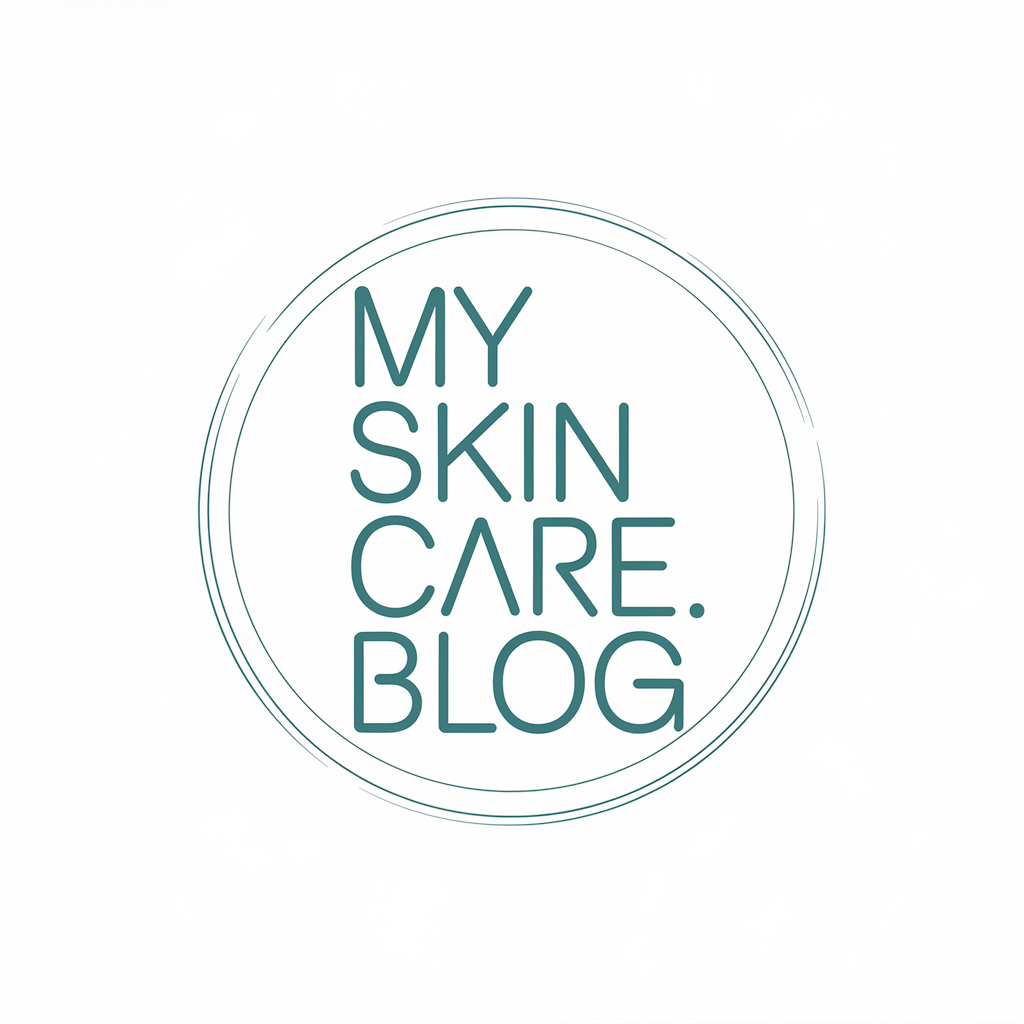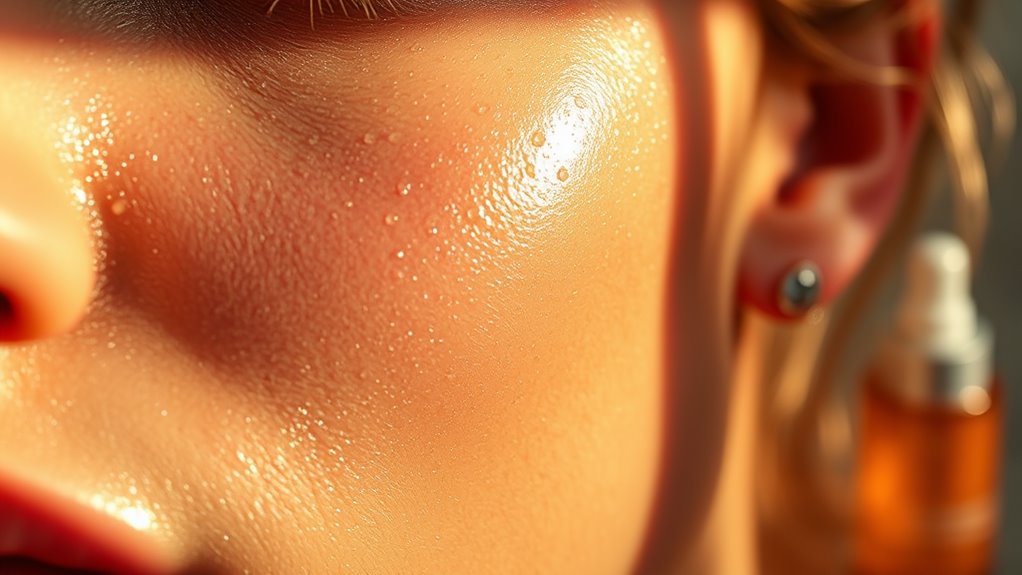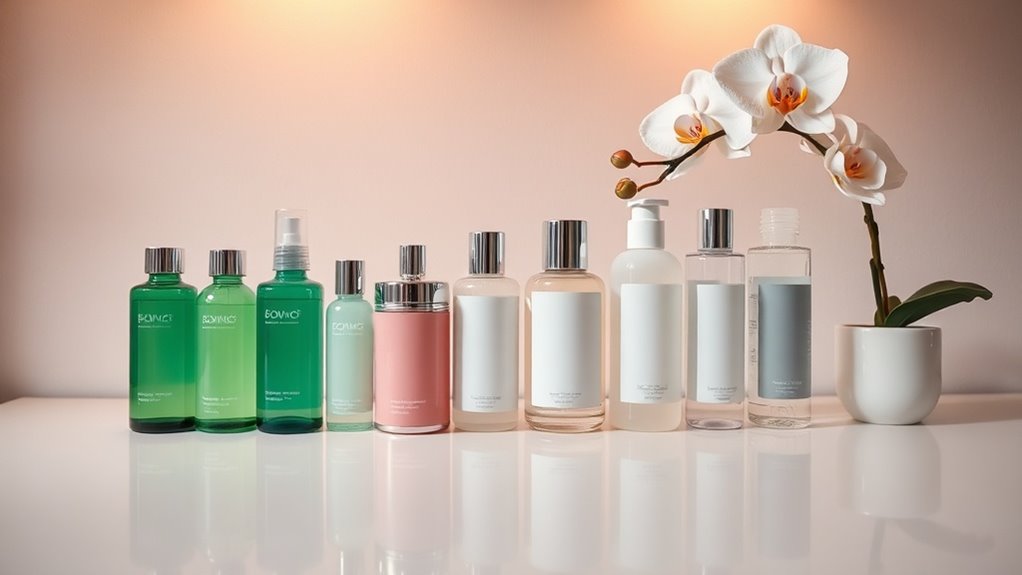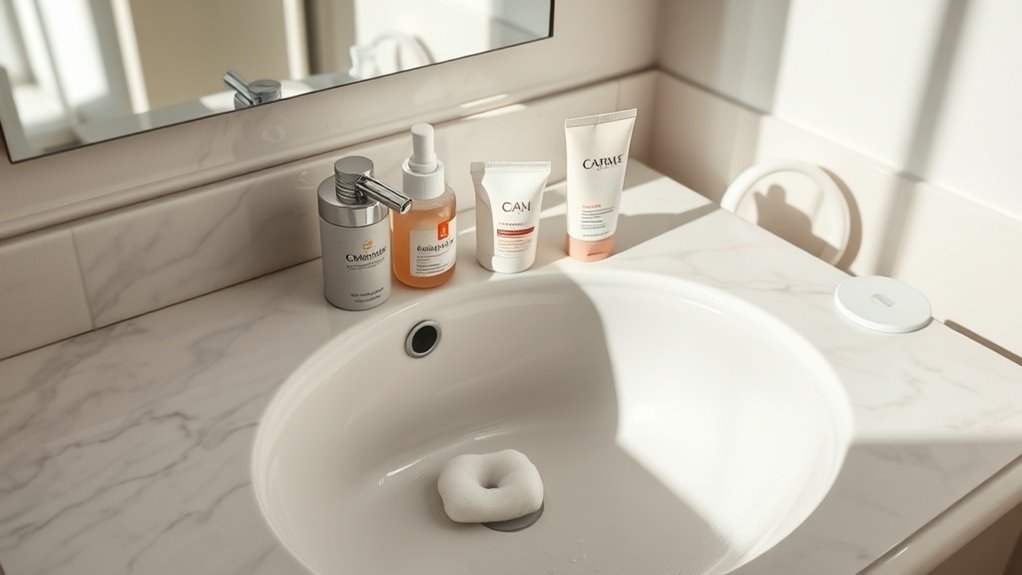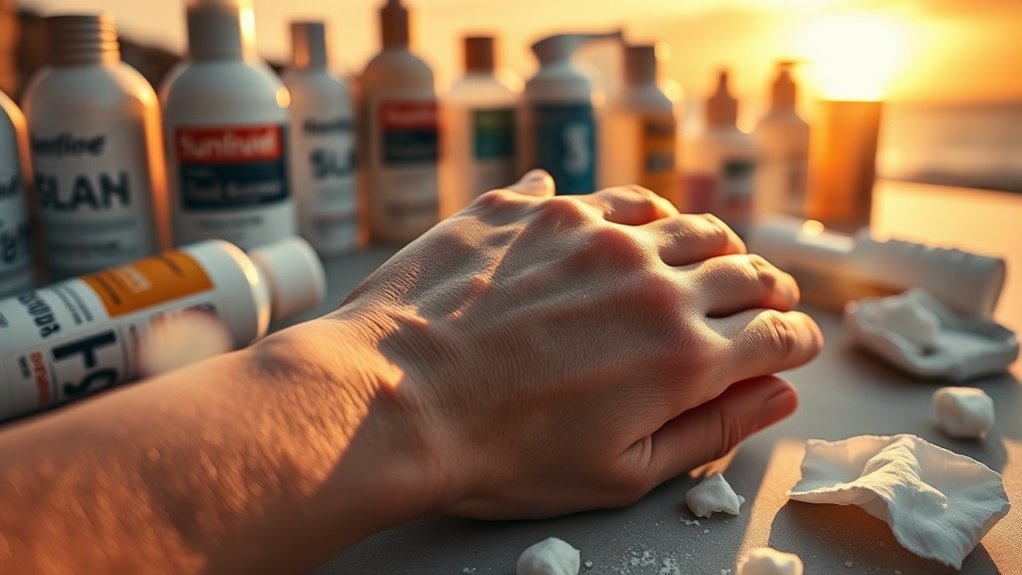Think You Have Oily Skin. This Might Actually Be the Problem
You might think you have oily skin, but that assumption could be misleading. Many people confuse oiliness with other skin issues, like dehydration or the effects of harsh products. Understanding your skin type is essential for effective care. Factors like hormones and environment play a significant role in how your skin behaves. So, what if the solution to your concerns lies in a simple change to your routine?
Key Takeaways
- Misdiagnosing skin type can lead to ineffective products; assess oiliness, dryness, and sensitivity accurately for better care.
- Oily skin often needs hydration; skipping moisturizer can worsen oiliness and lead to irritation.
- Environmental factors like humidity and stress can increase oil production, impacting skin’s appearance.
- Hormonal fluctuations significantly affect oiliness; consider hormonal changes during your assessment.
- Regular use of gentle cleansers and non-comedogenic products can help balance oil levels effectively.
Understanding Skin Types
How can you effectively manage oily skin if you don’t first understand your skin type?
Many people misdiagnose their skin type, assuming they’ve oily skin when it might actually be dehydrated or combination skin.
This misdiagnosis can lead to using inappropriate products that exacerbate your true condition.
To determine your skin type, consider factors like oiliness, dryness, sensitivity, and breakouts.
Analyzing your skin’s response to different environments and products will help you identify its unique needs.
Incorporating professional techniques for skin type identification will further enhance your understanding and improve your skincare routine.
Once you truly understand your skin, you can tailor your skincare routine to manage oiliness effectively and enhance your overall complexion.
Common Misconceptions About Oily Skin
What myths surround oily skin that could be influencing your skincare choices?
One common misconception is that oily skin doesn’t need moisturizer. In reality, skipping hydration can worsen oiliness as your skin compensates. Another myth is that all oily skin types are acne-prone, but not everyone with oily skin experiences breakouts. You might also believe that harsh products are necessary to control oil, but these can strip your skin and lead to irritation. Finally, many assume that oily skin is solely genetic; while that’s a factor, environmental influences and lifestyle choices play significant roles in your skin’s oil production. Moreover, understanding effective skincare routines can greatly improve your oil management and overall skin health.
Factors That Contribute to Oiliness
Ever wondered what really causes your skin to produce excess oil?
Several factors play a role, including hormonal fluctuations, which can trigger sebaceous glands to overproduce sebum.
Genetics also contribute; if your parents had oily skin, chances are you might too.
Environmental factors like humidity can exacerbate oiliness, as sweat and moisture mix with sebum.
Additionally, certain skincare products, particularly those that are overly harsh or drying, can backfire, prompting your skin to compensate by producing even more oil.
Stress can also influence oil production, making it essential to manage both your skincare routine and lifestyle effectively. Managing stress is crucial because it can lead to hormonal changes that trigger acne breakouts.
Identifying Your True Skin Type
Determining your true skin type is essential for effective skincare management.
Start by observing how your skin feels after cleansing.
If it appears shiny and feels greasy within a few hours, you may have oily skin.
Conversely, if it feels tight or dry, you could have dry or combination skin.
Pay attention to your pores; enlarged ones often indicate oiliness.
Additionally, consider environmental factors and hormonal changes, which can affect your skin’s behavior.
Conduct a patch test with various products to see how your skin reacts.
Understanding these nuances helps you tailor your skincare routine more effectively.
In addition, remember that improper cleansing techniques can contribute to breakouts and oiliness, making it crucial to wash your face properly.
Solutions for Balancing Your Skin
How can you effectively balance oily skin while maintaining its health?
Start by incorporating a gentle, sulfate-free cleanser to remove excess oil without stripping your skin’s natural moisture.
Use a lightweight, non-comedogenic moisturizer to hydrate without clogging pores.
Exfoliating regularly with a chemical exfoliant, like salicylic acid, can help unclog pores and reduce oiliness. This is because salicylic acid penetrates deep into the pores to eliminate excess sebum and dead skin cells that can lead to breakouts.
Incorporate oil-free sunscreens to protect your skin without adding shine.
Consider using oil-absorbing products, such as clay masks, once a week.
Finally, maintain a balanced diet and stay hydrated, as internal factors greatly influence your skin’s oil production.
Consistency is key for ideal results.
